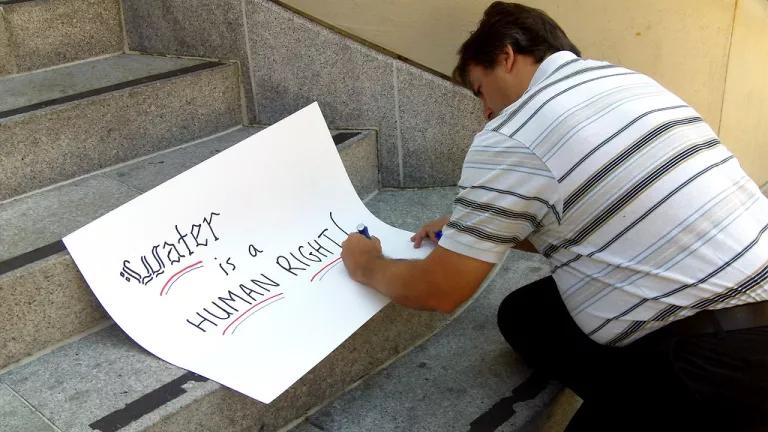Investigation Confirms Environmental Violations at Parchman Prison in Mississippi
An investigation by NRDC and our partners at the Southern Poverty Law Center (SPLC) reveals repeated drinking water and wastewater violations at the notorious Parchman prison in Mississippi.

The main entrance to the Mississippi State Penitentiary at Parchman
For years, the people incarcerated at the Mississippi State Penitentiary in Parchman have reported a host of problems relating to drinking water and sewage. Now, an investigation by NRDC and our partners at the Southern Poverty Law Center (SPLC) confirms repeated and likely ongoing environmental violations at the notorious Parchman prison.
Since the 1970s, the Clean Water Act and Safe Drinking Water Act have been bedrock environmental laws, protecting rivers and waterbodies from polluted wastewater discharges and promoting the quality and safety of tap water in public water systems nationwide, respectively. But even so, individuals incarcerated at Parchman have long described discolored drinking water tasting of sewage or strong disinfectant. Some of those confined at Parchman have also reported health problems that they attribute to drinking and showering in this water, including rashes, sores, and nausea.
See our archive of documents relating to environmental problems at Parchman Prison. →
Our investigation also identified serious issues with Parchman’s wastewater system, including major needed repairs that went ignored for years due to neglect and mismanagement. Wastewater discharged from Parchman’s derelict sewage treatment system may also be harming waters up to several miles downstream that are commonly used for fishing.

Hitchin’ Hill, where many locals go to fish and recreate, about eight miles from Parchman
In a joint letter sent to prison officials, Mississippi state agencies, and the U.S. Environmental Protection Agency, NRDC and SPLC detail Parchman’s multiple, yearslong violations of federal environmental laws. We are urging the agencies to diligently resolve the environmental injustices at Parchman prison and to protect the health of the 2,000 individuals incarcerated there, the staff, and the surrounding communities.









